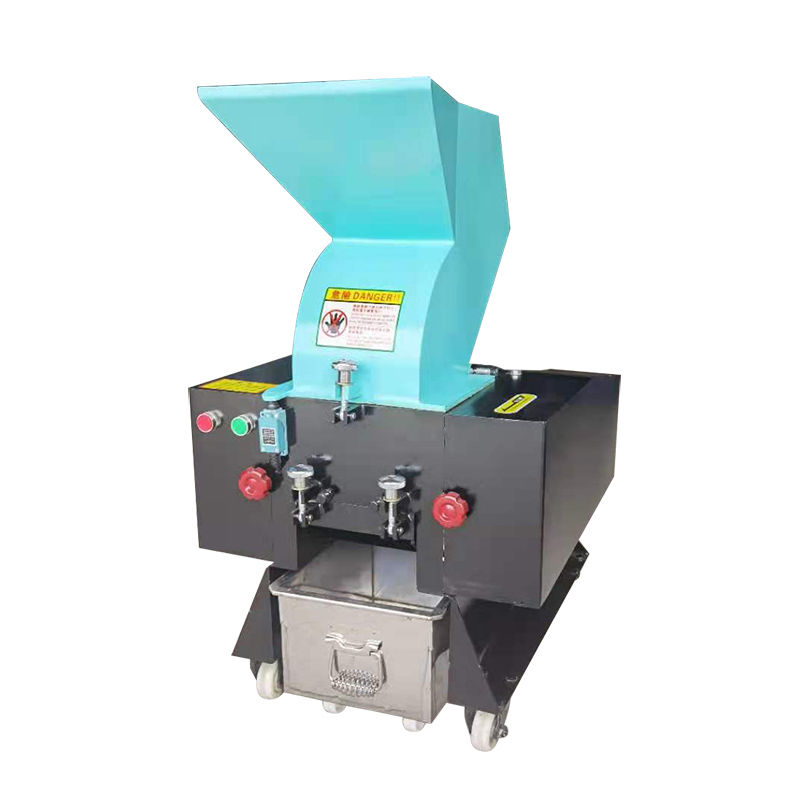Considerations related to plastic crushers
2024-01-17
A plastic crusher is a machine designed to reduce large plastic objects into smaller particles or granules. This size reduction process is essential in various recycling and plastic manufacturing applications. Plastic crushers play a crucial role in recycling processes by breaking down plastic waste or scrap into more manageable forms that can be reused or further processed. Here are key features and considerations related to plastic crushers:
1. Size Reduction Mechanism:
- Plastic crushers typically use mechanical force to break down plastic materials. Common mechanisms include rotating blades, knives, or hammers that cut, shear, or crush the plastic.
2. Types of Plastic Crushers:
- There are different types of plastic crushers designed for specific applications, including:
- Single Shaft Shredders: Have one rotating shaft with blades for cutting and shredding.
- Double Shaft Shredders: Feature two parallel shafts with blades for more efficient and thorough shredding.
- Granulators: Use a combination of blades and screens to produce uniformly sized granules.
3. Material Compatibility:
- Plastic crushers are designed to handle various types of plastic materials, including PET bottles, PVC, HDPE, LDPE, and other plastic products. The design and materials of the crusher components may vary based on the type of plastic being processed.
4. Feed Mechanism:
- Plastic crushers may have different feed mechanisms. Some crushers are designed for batch feeding, while others can continuously process materials. The feed mechanism influences the efficiency and throughput of the crusher.
5. Motor Power and Capacity:
- The motor power of a plastic crusher is a critical factor in determining its capacity and ability to handle different types of plastic. Higher motor power often correlates with higher processing capacities.
6. Safety Features:
- Safety features are crucial to protect operators and ensure the safe operation of the crusher. This may include emergency stop buttons, safety interlocks, and protective covers.
7. Size of Output Particles:
- Crushers can produce different sizes of output particles or granules. The choice of crusher and its settings influence the final size of the crushed plastic material.
8. Integration with Recycling Systems:
- Plastic crushers are often integrated into larger recycling systems, working in conjunction with other equipment such as conveyors, separators, and washing units.
9. Maintenance and Accessibility:
- Easy access to the crusher's internal components facilitates maintenance and cleaning. This is essential for preventing material buildup and ensuring the continued efficiency of the crusher.
10. Noise and Dust Control:
- Measures to control noise and dust emissions are important, especially in industrial environments. Some crushers come with features to reduce noise levels and contain dust.
11. Versatility:
- Some plastic crushers are versatile and can handle a wide range of plastic materials and forms, including bottles, containers, film, and more.
12. Environmental Considerations:
- The recycling process involving plastic crushers contributes to environmental sustainability by reducing the amount of plastic waste sent to landfills and promoting the reuse of materials.
Plastic crushers are integral components in plastic recycling and manufacturing processes, helping transform plastic waste into valuable resources. The appropriate choice of a plastic crusher depends on the specific requirements of the recycling or manufacturing operation.



